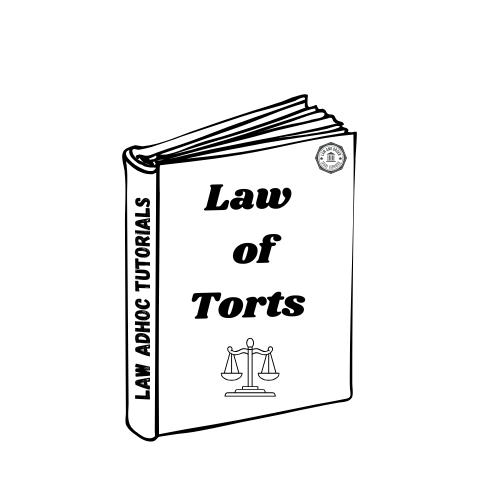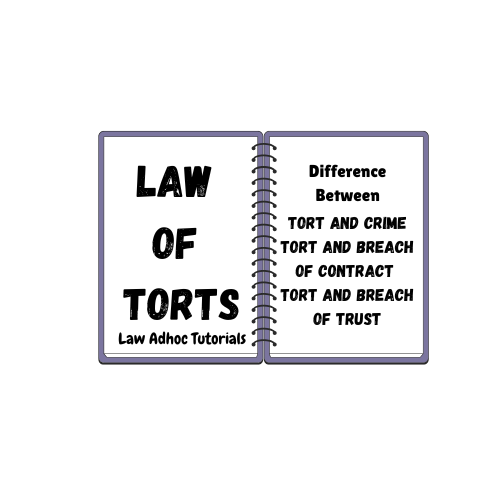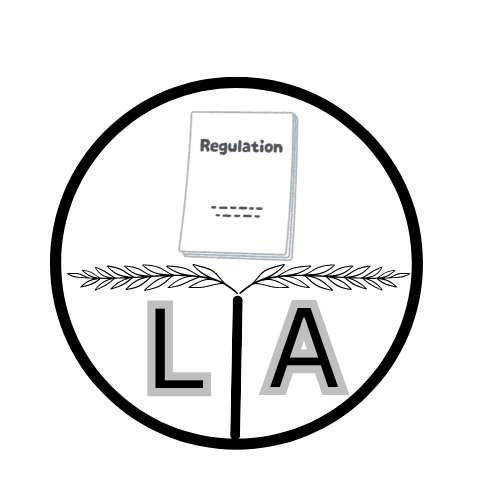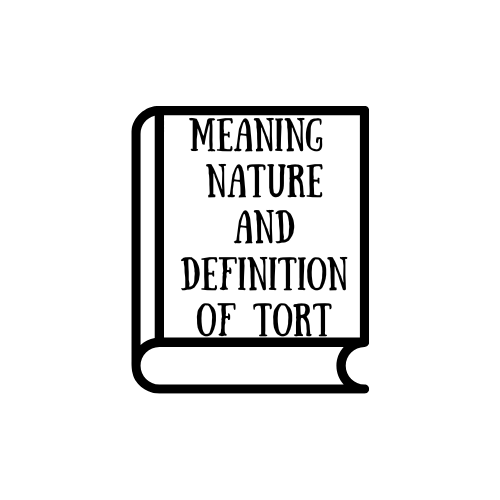Law of Torts Notes
Law of Torts notes
Law of Torts notes

Law of Torts notes
Welcome to Law Adhoc Tutorials !
These notes are in easy language and easy to remember.
Law Adhoc Tutorials is an education platform. It helps law students get high quality notes to make their study easier. Law Adhoc Tutorials provides full and completes notes for free for each subjects of law.
Law of Torts notes
Law of Torts notes
Law of Torts Notes
1.What is a tort ?
2.Introduction
3.Definition by various Jurists
4.Nature and objectives of tort
5.Essential elements of tort
6.Difference between tort and crime, tort and breach of contract and tort and breach of trust.
Law of Torts notes
Law of Torts notes
Meaning, nature and definition of Tort.
Law of Torts- Meaning and definition of Tort
Click on the above You Tube icon for the Hindi explanation of the above topic.
What is a Tort ?
Introduction
The word tort has been derived from the Latin term ‘Tortum’ which means ‘to twist’. Thus, ”tort” means ”a conduct which is not straight or lawful, but on the other hand , twisted, crooked or unlawful”. It is equivalent to the English term wrong.
It consists of the various ‘torts’ or wrongful acts whereby the wrongdoer violates some legal rights vested on the other person.
It is a breach of duty which amounts to civil wrong. The law imposes a duty to respect the legal rights vested in the members of the society and a person making a breach of that duty is said to be doing the wrongful act.
Section 2(m) of the Limitation Act, 1963 says “Tort means a civil wrong which is not just exclusively a breach of contract or breach of trust.
Definition by various Jurists
According to Sir JohnSalmond: “It is a civil wrong for which the remedy is common law action for unliquidated damages and which is not exclusively the breach of a contract or a breach of trust or other by merely equitable obligation.”
According to Sir Winfield: “Tortious liability arises from the breach of duty primarily fixed by the law : this duty is towards persons generally and its breach is redressible by an action for unliquidated damages.”
According to Sir Fraser: “It is an infringement of a right in rem of a private individual giving a right of compensation at the suit of the injured party”.
Nature and objective of tort
The basic idea which comes to our mind after reading this definition is that:
Firstly, tort is a civil wrong , and secondly , every civil wrong is not a tort.
For example, violation of a duty not to injure the reputation of someone else results in the tort of defemation : violation of duty not to interfere with the possession of land of another person results in the tort of trespass of land: and, the violation of a duty not to defraud another results in the tort of deceit.
Objectives:
1) To determine the rights between the parties.
2) To protect the rights of individuals recognized by law.
3) To protect one’s property and return to the original possession or owner.
Essential Elements of Tort
Essential elements of tort
1. Act or omission
2. Legal damages
Wrongful act or omission
The first essential ingredient in constituting a tort is that a person must have committed a wrongful act or omission that is, he must have done some act which he was not expected to do, or, he must have omitted to do something which he was supposed to do. The wrongful act or a wrongful omission must be one recognized by law. If there is a mere moral or social wrong, there cannot be a liability for the same.
For example, if somebody fails to help a starving man or save a drowning child. But, where legal duty to perform is involved and the same is not performed it would amount to wrongful act.
Legal Damage
The second important ingredient in constituting a tort is legal damage. In order to prove an action for tort, the plaintiff has to prove that there was a wrongful act, an act or omission which caused breach of a legal duty or the violation of a legal right vested in the plaintiff.
The maxim expresses this,
“Injuria sine damnun ‘Injuria’ refers to infringement of a legal right and the term ‘damnum’ means substantial harm, loss or damage.
Injuria Sine Damno
This maxim means infringement or violation of a legal private right of a person even if there is no actual loss or damage. In such a case the person whose right is infringed has a good cause of action. He doesn’t need to prove any special damage. The infringement of private rights is actionable per se.
In Ashby v. White, the plaintiff was a qualified voter at a Parliamentary election, but
the defendant, a returning officer, wrongfully refused to take plaintiffs vote. No loss was suffered by such refusal because the candidate for whom he wanted to vote won the election. Plaintiff succeeded in his action.
Lord Holt, C.J., observed as follows,
“If the plaintiff has a right he must of necessity have a means to vindicate and maintain it, and a remedy if he is injured in the exercise or enjoyment of it, and indeed it is a vain thing to imagine a right without a remedy, for want of right and want of remedy are reciprocal”
“Every injury imports a damage, though it does not cost a party one penny and it is impossible to prove the contrary, for the damage is not merely pecuniary, but an injury imports a damage, when a man is thereby hindered of his right. As in an action for slanderous words, though a man does not lose a penny by reason of the speaking of them, yet he shall have an action.
So, if a man gives another a cuff on his car, though it costs him nothing, not so much as a little diachylon (plaster), yet he shall have his action. So, a man shall have an action against another for riding over his ground, though it does him no damage, for it is an invasion of the property and the other has no right to come there.”
Damnum sine injuria
Damnum sine injuria means an actual and substantial loss without infringement of any legal right. In such a case no action lies. There are many harms of which loss takes no account and mere loss of money’s worth does not by itself constitute a legal damage.
Gloucester Grammer School Case, Held. The defendant, a schoolmaster, set up a rival school to that of the plaintiff. Because of the competition, the plaintiff had to reduce their fees. Held, the plaintiff had no remedy for the loss suffered by them. Hanker J. said “Damnum may be absque injuria as if I have a mill and my neighbour builds another mill whereby the profits of my mill is diminished… but if a miller disturbs the water from going to my mill, or does any nuisance of the like sort, I shall have such action as the law gives”.
Law of Torts notes

Law of Torts notes
Difference between tort and crime, tort and breach of contract and tort and breach of trust.
Difference between :
Tort and Crime
Tort and Breach of contract
Tort and breach of trust
Distinction between ‘Tort’ and ‘Crime’
First on the basis of nature of wrong-
Tort is a private wrong. Private wrong is the infringement of civil right of an individual. It is comparatively less serious and labeled as civil wrong. Whereas crime is a public wrong. Public wrong is a violation or breach of rights and duties which affect the community, as a whole. It is a more serious wrong.
Second on the basis of nature of remedy-
The remedy in law of tort is damages where as the remedy in crime is punishment.
Third on the basis of parties to suits-
In case of tort the suit is filed by injured or aggrieved party where as In case of crime the complaint is filed in the name of State.
Fourth on the basis of withdrawal of suits-
In case of tort the suit can be withdrawn at any time and compromisecan be done with wrongdoer where as In case of crime the complaint cannot be withdrawn except in certain circumstances.
Fifth on the basis of codification-
There is no codification in Law of Torts where as The Criminal law is codified.
Sixth on the basis of bar of limitation-
There is bar of limitation of prosecution in Law of torts where as There is no bar of limitation of prosecution in crime.
Seventh on the basis of survival of action-
In case of death of tort-feaser his legal representative can be sued except when the tort is defamation, personal injury not causing a death where as In case of death of offender, the suit is put to an end.
Eighth on the basis of application of law-
There is no separate statute deals with tort. Tort is based on judicial decisions where as the crimes are dealt in Indian Penal Code, 1860.
Ninth on the basis of intention-
In tort, Intention is important but not in all cases, for example, in casesof negligence where as in crime, Intention is the crux of the offence
Despite of these differences, the injunction may be granted in tort as well as in crime. There are various wrongs which fall under law of torts as well as under criminal law, for example, Assault, Defamation, Negligence, Nuisance and Conspiracy.
Distinction between Tort and Breach of Contract
First on the basis of fixation of duty-
In tort, the duty is fixed by the law itself where as In contract, the duty is fixed by the party themselves.
Second on the basis of attribution of duty-
In tort, the duty is towards every person of the community or society where as In contract, the duty is towards specific person or persons.
Third on the basis of violation of rights-
A tort is a violation of a right in rem (that is, a right vested in some determinate person and available against the world at large) where as A breach of contract is an infringement of a right in personam (that is, of a right available only against some determinate person or party.
Fourth on the basis of need of privity-
In an action for tort, no Privity is needed or is required to be proved where as In a breach of contract, Privity between the parties must be proved.
Fifth on the basis of motive –
In tort, motive is often taken into account where as In breach of contract motive is not relevant.
Sixth on the basis of damages –
In tort, measure of damages is different in different circumstances which may be nominal or exemplary where as In Breach of contract, damages are awarded in the form of compensation for pecuniary loss suffered.
Seventh on the basis of suit by third party –
A third party can sue for tort even though there was no contract between the person causing injury and the person injured where as A third party to a contract cannot sue for breach of contract except in some exceptional cases.
Eighth on the basis of intention –
Intention is sometimes taken into consideration where as Intention, in case of breach of contract, is of no relevance.
Ninth on the basis of concern –
Law of tort is concerned with losses where as Contract law is concerned with promises.
Tenth on the basis of period of limitations –
Limitation begins to run from the date when damages occurs where as Limitation commences when the breach of obligation takes place.
Distinction between Tort and Breach of Trust
First on the basis of damages –
Damages in a tort are unliquidated where as Damages in breach of trust are liquidated.
Second on the basis of origin –
Law of torts has its origin as part of common law where as Breach of trust could be redressed in the court of Chancery.
Third on the basis of law of property –
Law of tort is not regarded as a division of the law of property where as Law of trust can be and is regarded as a division of the law of property.
Law of Torts notes Law of Torts notes Law of Torts notes Law of Torts notes Law of Torts notes Law of Torts notes Law of Torts notes
Law of Torts notes Law of Torts notes Law of Torts notes Law of Torts notes Law of Torts notes Law of Torts notes Law of Torts notes
Penology and Victimology Notes : https://lawadhoctutorials.com/penology-and-victimology-notes/
Penology and Victimology Notes PDF : https://lawadhoctutorials.com/penology-and-victimology-notes-pdf/
Education of Prisoners Notes : https://lawadhoctutorials.com/education-of-prisoners/
Vocational Training for Prisoners notes : https://lawadhoctutorials.com/vocational-training-for-prisoners-in-india/
Rights and Duties of Prisoners notes :- https://lawadhoctutorials.com/rights-and-duties-of-prisoners/
Model Prison Act Notes : https://lawadhoctutorials.com/model-prisons-act-2003/
All subjects law notes : https://lawadhoctutorials.com/subject/
All subjects law notes in pdf : https://lawadhoctutorials.com/notespdf/
Law of torts lecture link on YouTube: https://youtu.be/fRx-i5fk3jo?si=QPnyduoa3IeZoI5W
Free and easy to access law notes. The law notes are available for all law subjects. Please check the below-mentioned list for complete law notes.
Click on the specific subject to view its notes.



2 thoughts on “Law of Torts notes”